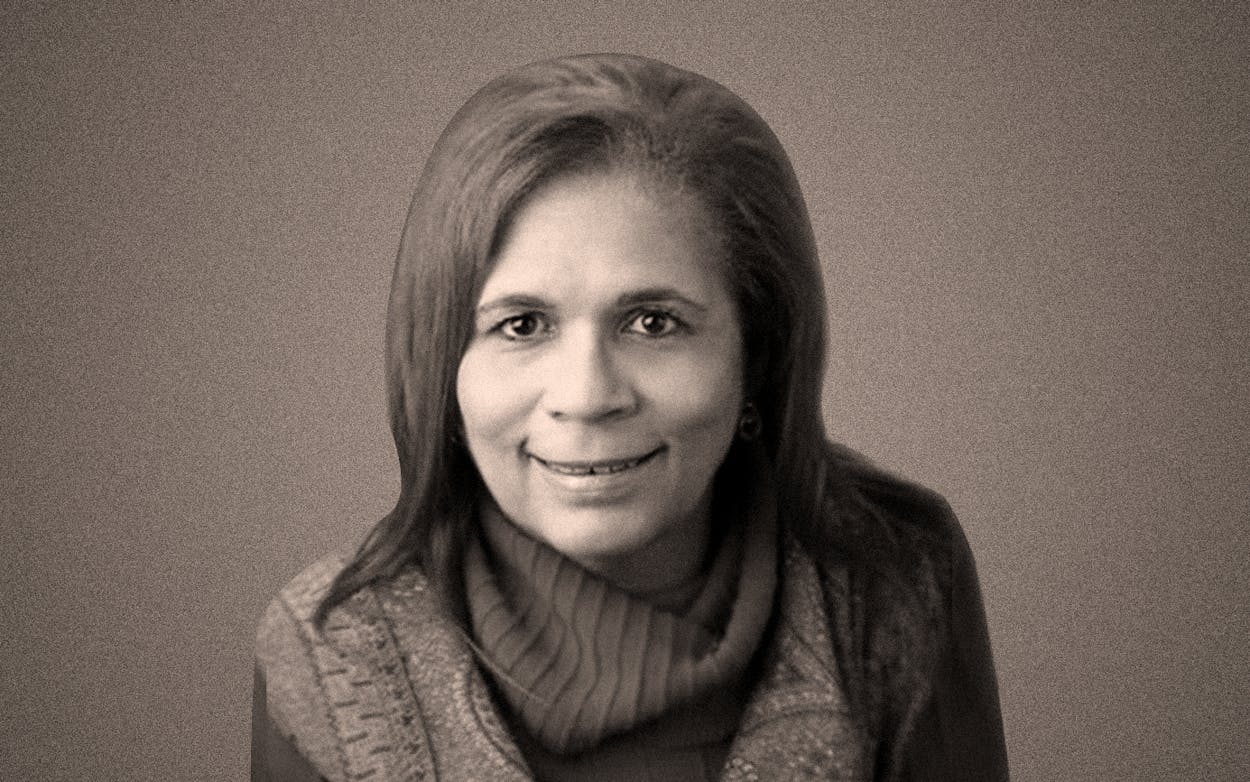On Tuesday night, as the decade flipped into the twenties, people around the world celebrated, marking the occasion with toasts, sparklers, fireworks—and, unfortunately, guns fired into the air. One such gun propelled a bullet into the sky that came down in a cul de sac in northwest Houston’s Laurel Oaks neighborhood, where Philippa Ashford was standing at the end of her son’s driveway. The bullet struck Ashford on its way down, and the 61-year-old psychiatric nurse was killed moments after impact.
According to the Houston Chronicle, Ashford was struck just after midnight. Ashford was an important member of her community—honored by the Texas Nurses Association for her work; an adjunct professor at Houston’s University of Texas Health Science Center; and a member of the Sigma Theta Tau International Honor Society of Nursing.
According to the paper, Houston police have no suspects in the case. “We have no indication that any family member or anybody in the cul de sac was discharging a firearm and we’ve walked the streets and canvassed up and down to see if we can find any shell casings in the neighborhood and are not finding anything,” Harris County Sheriff’s Office spokesman Sergeant Ben Beall told the Chronicle.
A lack of suspects isn’t uncommon in cases like these. A report from Birmingham, Alabama, found that, of 2,500 reports of celebratory gunfire in the early hours of 2013, a local police crackdown on the practice resulted in only nine arrests. Texas law prohibits firing guns into the air under a broader misdemeanor statute against deadly conduct, which can result in fines up to $4,000 or a year in prison—but a bullet will travel 2,900 feet per second, and it will remain lethal if shot at an angle between 20 and 45 degrees. Whoever shot the bullet that killed Philippa Ashford could have been some distance away, in other words, and it’s unlikely that police are going to identify the shooter at this point.
Ashford isn’t the only person who has ended up in a celebratory bullet’s path on New Year’s Eve. Three years ago, state representative Armando Martinez was celebrating with his wife in Weslaco when he was struck in the head by a bullet, which penetrated his skull and ended up lodged into the top layer of his brain, according to CNN. Martinez recovered, and returned to the legislature in 2017 with a new sense of purpose—he introduced legislation that would have created a specific criminal penalty (as a class A misdemeanor) for firing a gun without a target, which could escalate to a felony if it resulted in serious bodily injury or death. The bill was opposed by Open Carry Texas, which criticized it as “overbroad,” and the group’s founder suggested that the bullet that struck Martinez could have been fired by “two gangs actually shooting at each other.” The bill did not pass.
Enhanced penalties wouldn’t make a difference in Philippa Ashford’s death, though, just as they wouldn’t have meant anything to the person whose bullet struck Martinez—if no suspect is identified, then there’s no one to charge with a misdemeanor or a felony. What does seem to make a difference, according to the Tampa Bay Times, are robust public information campaigns. In 2012, Miami officials told the paper they received no incidents of celebratory gunfire after investing heavily in a “one bullet kills the party” campaign, tapping rapper Pitbull, a beloved local icon, to urge revelers to celebrate without shooting guns into the air. (A Miami-Dade resident was killed by what might have been a celebratory bullet, though, in 2018.) Ultimately, there’s little law enforcement can do about bullets fired at random, falling where they will, and taking people’s lives—instead, all anyone can really do is remind those who might engage in the habit of celebratory gunfire that every bullet they shoot has the potential to turn them into a killer, however inadvertently. And it’s people like Philippa Ashford—whose utterly pointless death is currently being mourned by her family and her community—who will pay the price for someone else’s momentary thrill.








